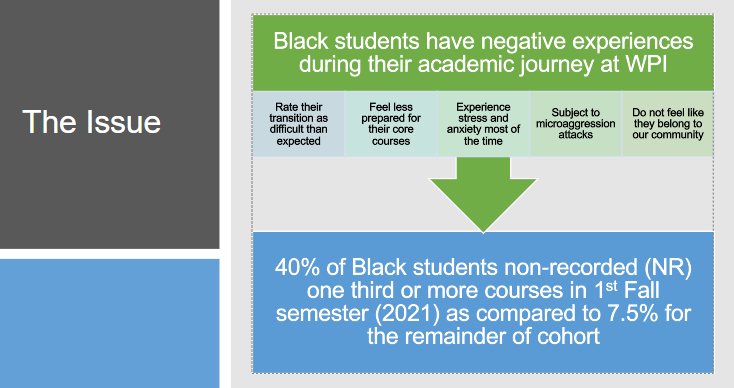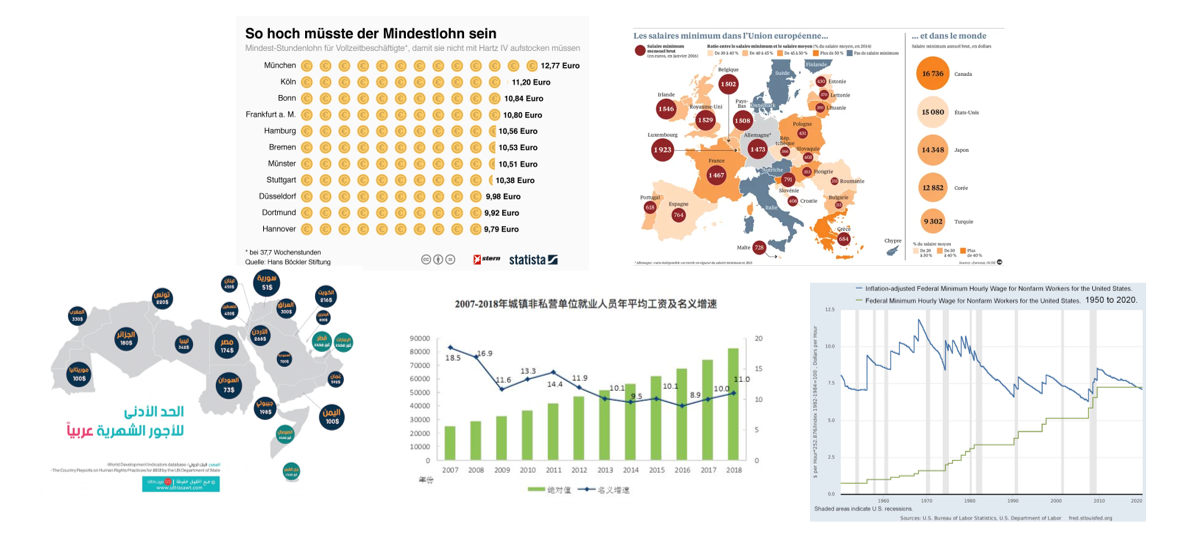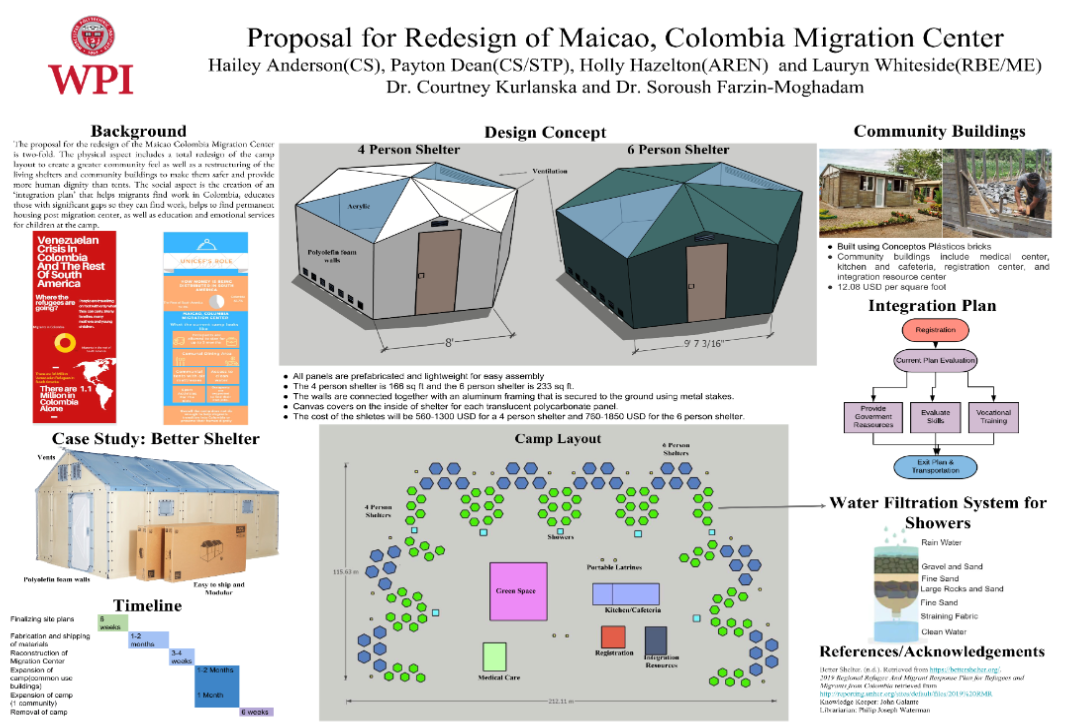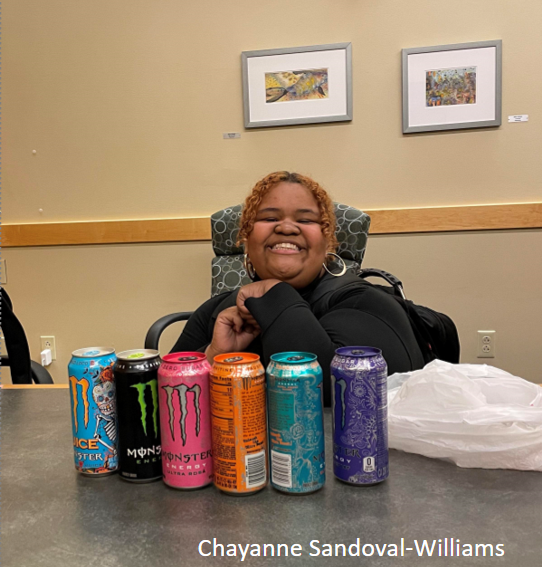DEIJ PGP Grants Awarded 2022
WPI planning grants of up to $4,000 have been awarded to eight teams led by staff and faculty for early-stage equity, inclusion, and justice research and creative projects.
As part of the Diversity, Equity, Inclusion, and Justice Planning Grant Program, announced by the Office of the Vice Provost for Research in May 2022, the teams will explore topics such as mentoring for graduate students and data visualization across cultures and languages. Research grants are being offered to investigate marginalized groups or inequities at WPI or in STEM fields.
The Diversity, Equity, Inclusion and Justice (DEIJ) planning grant program was launched in the summer by the OVPR to encourage multidisciplinary collaborative research and scholarship in the DEIJ area. Eight projects were funded, all of which promise to be innovative collaborations between faculty from different academic departments.
DEIJ Grants Will Expand Multidisciplinary Research Possibilities
Read this story to find out more about how the DEIJ seed grant program and how it helps advance WPI research.

Black Student Success Program
Principal Investigator: Hermine Vedogbeton
Read the description
The purpose of this project is to create sustainable practices to promote and retain Black students in STEM subjects broadly, and more specifically at WPI. In this project, we will study and collect data on what it takes for Black students to succeed at WPI using a participatory action research approach. Once we collect this information, we will develop an interactive handbook and a three-tier mentorship program that brings faculty from WPI, experts in the student’s field of study, and a peer mentor to assist students in their first two years at WPI. As a STEM school, WPI can be a leader and promote global initiatives in DEIJ through funding this research project related to the experiences of marginalized groups.

Bridging the Disciplinary Divide with DEIJ Research Interest Groups
Principal Investigator: Holger Droessler
Read the description
Our project aims to build a community of multidisciplinary scholars who share common research interests in diversity, equity, inclusion, and justice (DEIJ), yet differ in their research methods. Recent scholarly work has highlighted that most DEIJ challenges are “wicked problems,” and the conceptualization of such problems requires collaboration among researchers equipped with different methodological perspectives (basic and applied, qualitative and quantitative, interpretive and analytical, experimental and descriptive, cross-sectional and longitudinal). In this project, we will create four DEIJ research interest (RIG) groups in AY 2022-23. We will organize research workshops around four themes to connect WPI researchers interested in DEIJ research: (1) clean water access and reuse, (2) peace, conflict, and security, (3) automation and the future of work, and (4) global mobilities and migration. Each DEIJ-RIG will generate a space of co-learning designed to evolve into collaborative research projects as well as into efforts to secure external funding to support these projects. The chosen themes represent societal/scientific/technological complexities that have a disproportionate negative impact on under-resourced communities and historically marginalized groups such as BIPOC, women, LGBTQIA+ folks, and people with disabilities.

Building Community and Reducing Attrition By Developing a Mentoring Program for Graduate Students from Underrepresented Groups
Principal Investigator: Rory Flinn
Read the description
We aim to obtain, collect, and analyze data related to the mentoring and student support needs of WPI graduate students from underrepresented groups (URGs). We will recruit graduate students from URGs to help us co-design an effective mentoring program to enhance their experience and sense of belonging at WPI. The co-designed mentoring program will integrate elements of effective graduate student mentoring programs at peer institutes. We will then develop a research study proposal to evaluate the newly designed mentoring program and will seek external funding to support the study and implementation of the mentoring program at WPI in AY 2023-2024 and beyond.

Data Visualization Across Languages and Cultures
Principal Investigator: Lane Harrison
Read the description
Access to high-quality, understandable, and actionable data is a key part of modern daily life. People must navigate and act on complex data in many situations, from public health emergencies such as pandemics and natural disasters to financial decisions such as choosing a place to live. While data visualization has made significant progress in making information more understandable and accessible, it has done so primarily by targeting the needs of W.E.I.R.D. populations (Western Educated Industrialized Rich, Democratic) [1]. The reality however is that visualization is used across languages and cultures. This presents a substantial challenge: to what extent do our notions of data visualization effectiveness and design practices apply to understudied populations? We will conduct a qualitative study with rhetoricians who are experts in specific languages and cultures. Outcomes will include 1) qualitative results from an interview study targeting the use of data and visualization across languages and cultures and 2) a catalog of language/culture targeted visualizations following leads from our participant pool. We will expand our language group to include Malagasy, Spanish, and Japanese, in addition to Arabic, Mandarin, French, German, and English from our previous study.

Responsible Representation: Assessing Cultural Competency for Equity and Inclusion in Student Posters
Principal Investigator: Courtney Kurlanska
Read the description
This project seeks to identify and understand the indicators of true cultural competence in GPS student posters. Because GPS projects address local cases of global problems, it is easy for students to represent the communities enmeshed in these problems as helpless, exploited objects rather than self-determined individuals and communities capable of solving their own problems. The implication is stereotyping and difficulty seeing real agency within these communities. Cultural competence, the ability of an individual to understand, respect, and appropriately respond to cultural differences, is widely used in DEI work as it lays the foundation for developing key DEI competencies and has been used to develop the Cultural Competence for Equity and Inclusion (CCEI) framework. The goal of this SEED grant is to learn how to effectively evaluate the visual and textual content of our students’ posters for student learning and communication of Cultural Competence for Equity and Inclusion within the context of the learning outcomes. We will use our findings to create a framework that can be expanded for use in evaluating how these principles are represented in other project work published by our students (IQP/MQP).

Creation of a Bridge to WPI Program using the Connections Academic Immersion + Pre-Orientation Program Model
Principal Investigator: Arnold Lane
Read the description
Connections is designed to assist incoming first-year students who are underrepresented in STEM/WPI and identify as Black, Indigenous, People of Color (BIPOC), African American, Latino/a American, Asian American, Native American (ALANA), Lesbian, Gay, Bisexual, Trans, Queer, Intersex, Asexual, Aromantic, Agender and Pansexual (LGBTQIAP+), and/or first-generation college students, make a smooth transition from high school to college. The planning grant will be used to Observe, collect, curate, analyze, and present data related to the 100 students participating in the Connections experience as members of the Class of 2026.•Survey new students about the impact of the program on their onboarding experience and transition to WPI.•Assess student academic progress through their first semester in anticipation for their selection of an academic program/major.•Develop and assess strategies throughout the academic year as students matriculate through their first semester.•Benchmark comparable institutional Bridge Programs in consultation with the Access and Affordability strategic planning group.•Design a research study proposal to evaluate the effectiveness of the academic immersion offering to formally launch a WPI Bridge Program.

Ungrading in Higher Ed: the Experiences of Marginalized Students
Principal Investigator: Benjamin Pollard
Read the description
Despite the potential for ungrading to differentially benefit students with marginalized identities, the connections between ungrading, educational equity, and social justice are not yet fully understood. This gap is especially true in the context of higher education classrooms. To begin to fill in these gaps, we will conduct research into the experiences of marginalized students who have participated in ungraded classes at WPI. We will identify themes to lay a foundation of understanding, preparing us to seek funding to continue and grow this work. Alongside this research, we will continue to innovate in our approaches to ungrading in our classrooms at WPI, and share what we create both within WPI and beyond to promote equitable ungrading in higher education.

Balancing Rest and Work at WPI: Experiences of First-Generation Students, International Students, and Transfer Students
Principal Investigator: Stacy Shaw
Read the description
When it comes to the balance of rest and work, the experiences of WPI students are both important and not well understood. The focus of this proposal is to create a cross-disciplinary project that amplifies WPI student experiences and struggles with the rest/work balance across three important student subgroups—first-generation students, international students, and transfer students. We will recruit a sample of 150WPI undergraduate students comprised of first-generation students, international students, and/or transfer students to participate in a two-part study. For the first part, students will complete a survey that asks about their backgrounds (e.g., major, year, transfer status) attitudes/ experiences regarding rest (e.g., viewing rest as productive, feelings of guilt while resting), and asks them to on how their status as a first-generation student, international student, or transfer student may affect their experiences balancing rest and work. For the second part of the study, we will employ a modified photo-elicitation methodology (Harper, 2002) that asks each of the participants (same sample) to either take a photograph or create an image that represents their current experience with the rest/work balance at WPI. Once completed, students will submit their work and be asked to write a paragraph describing how the image reflects their experience.